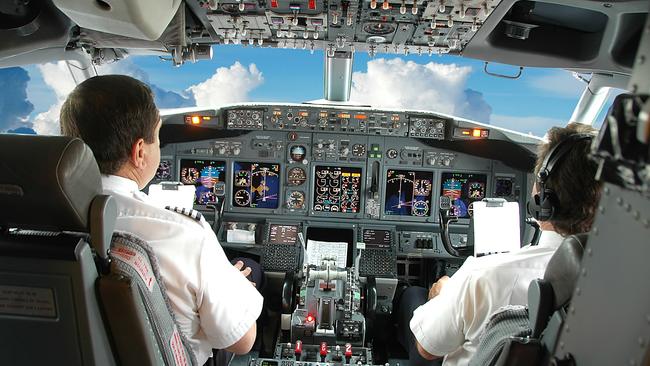Pilots on long-haul flights fatigued, says report
One in four long-haul pilots gets less than five hours sleep the day before a commercial flight, a report on pilot fatigue has found.

One in four long-haul pilots gets less than five hours’ sleep the day before a commercial flight, a report on pilot fatigue has found.
The Australian Transport Safety Bureau report surveyed 625 pilots from a range of sectors including domestic, international, charter and aeromedical.
It found the majority of pilots were getting sufficient rest but those who did not were more likely to be operating flights in excess of eight hours.
The ATSB report observed less than five hours’ sleep a night could be associated with impaired performance.
While on duty, about half of all international and domestic pilots reported having less sleep than at home. About 15 per cent of international pilots said they had no rest during their last flight.
Although there were formal processes available to pilots to remove themselves from duty due to fatigue, most said they felt uncomfortable doing so and believed it would create a negative impression with management.
Australian and International Pilots Association safety and technical director Shane Loney said the report’s findings were timely, with the Civil Aviation Safety Authority due to finalise new fatigue risk management rules this year.
“When you’ve got 30 per cent of long-haul pilots reporting less than 12 hours of sleep in 48 hours, that’s quite a sleep debt you’re building up,” Mr Loney said.
“It demonstrates to CASA this is real. It’s not something dreamt up by pilots out of some industrial gambit.”
He said one question the ATSB did not ask was how many pilots had fallen asleep unintentionally during a flight.
“I’ve seen that asked live to a group of 250 to 300 pilots and it is almost shocking when you see how many people put their hand up,” Mr Loney said.
“What is worse is the odd occasion when you have two pilots who have unintentionally fallen asleep.
“It happens a lot more often than we’d like to imagine.”
A Qantas spokesman said the airline had a mature fatigue risk management system in place that recognised the issue was a “shared responsibility”.
“Qantas structures its rosters to allow pilots to get optimal rest and pilots are educated about healthy sleep patterns and how to recognise signs of fatigue,” the spokesman said.
“In line with our safety-first culture, if a pilot reports not feeling well rested, they are excused from duty.”
A Virgin Australia spokeswoman said the airline had a Civil Aviation Safety Authority-accepted fatigue risk management system in place, which continuously monitored and managed fatigue-related safety risk for pilots.
“As fatigue is an individual experience and not everyone is affected in the same way, our FRMS is based upon dual responsibility, whereby we work with our team members to effectively identify and manage fatigue risks and hazards,” the spokeswoman said.
The ATSB report did not make any recommendations about managing fatigue.
It noted that “responsibility to manage the risk of fatigue lies with both the individual pilot and organisation”.
“The results of this research suggest that operating in circumstances conducive to fatigue is an ongoing challenge for a proportion of Australian air transport pilots,” the report said.




To join the conversation, please log in. Don't have an account? Register
Join the conversation, you are commenting as Logout